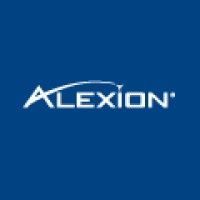预约演示
更新于:2025-05-07
Alexion Pharma GK
更新于:2025-05-07
概览
标签
遗传病与畸形
血液及淋巴系统疾病
眼部疾病
小分子化药
疾病领域得分
一眼洞穿机构专注的疾病领域
暂无数据
技术平台
公司药物应用最多的技术
暂无数据
靶点
公司最常开发的靶点
暂无数据
| 疾病领域 | 数量 |
|---|---|
| 血液及淋巴系统疾病 | 1 |
| 排名前五的药物类型 | 数量 |
|---|---|
| 小分子化药 | 1 |
| 排名前五的靶点 | 数量 |
|---|---|
| CFD(补体因子D) | 1 |
关联
1
项与 Alexion Pharma GK 相关的药物靶点 |
作用机制 CFD抑制剂 |
在研适应症 |
最高研发阶段批准上市 |
首次获批国家/地区 日本 |
首次获批日期2024-01-18 |
2
项与 Alexion Pharma GK 相关的临床试验JPRN-jRCTs031230647
Study of the patients who have suboptimal response with Satralizumab and switched to Ravulizumab - Real World effectiveness and safety of Ravulizumab
开始日期2024-02-21 |
申办/合作机构 |
JPRN-UMIN000048078
Long-term impact of eculizumab on quality of life and patient-reported symptoms of Japanese GBS patients at 52 weeks post disease onset: an observational survey - ECU-GBS-LTO study
开始日期2022-07-02 |
申办/合作机构 |
100 项与 Alexion Pharma GK 相关的临床结果
登录后查看更多信息
0 项与 Alexion Pharma GK 相关的专利(医药)
登录后查看更多信息
22
项与 Alexion Pharma GK 相关的文献(医药)2025-04-08·Neurology
Ravulizumab in Patients with Generalized Myasthenia Gravis (gMG) from Japan: Real-world Outcomes (P7-11.023)
作者: Suzuki, Shigeaki ; Murai, Hiroyuki ; Yamamoto, Takanori ; Utsugisawa, Kimiaki ; Okuda, Masaki ; Yungher, Benjamin ; Sakurai, Kenzo ; Takahashi, Masanori ; Uzawa, Akiyuki ; Watanabe, Mitsuru
2025-04-08·Neurology
Long-term Effectiveness and Safety of Eculizumab in Patients With Generalized Myasthenia Gravis (gMG): Real-world Data From Japan (S34.006)
作者: Murai, Hiroyuki ; Tezuka, Tomoaki ; Utsugisawa, Kimiaki ; Takahashi, Masanori ; Mizuno, Masanori ; Watanabe, Mitsuru ; Masuda, Masayuki ; Kondo, Takayuki ; Suzuki, Shigeaki ; Okuda, Masaki
2024-03-01·Bone Marrow Transplantation
Eculizumab treatment in paediatric patients diagnosed with aHUS after haematopoietic stem cell transplantation: a HSCT-TMA case series from Japanese aHUS post-marketing surveillance.
Article
作者: Kinoshita, Mariko ; Ozeki, Michio ; Yagasaki, Hiroshi ; Yokosuka, Tomoko ; Goto, Hiroaki ; Teranishi, Hirofumi ; Saito, Atsuro ; Ueki, Hideaki ; Yokoyama, Norifumi ; Watanabe, Kenichiro ; Miyamura, Takako ; Ito, Shuichi ; Karakawa, Shuhei ; Sakurai, Ayako
1
项与 Alexion Pharma GK 相关的新闻(医药)2022-03-17
Bodo Marks/picture alliance via Getty
Alexion will pay Chugai $775 million in the second quarter of 2022 in exchange for the Japanese firm withdrawing the patent infringement lawsuits it filed in Europe, Japan and the U.S.
Bodo Marks/picture alliance via Getty
Alexion
has agreed to
resolve all patent disputes
with
Chugai Pharmaceutical
regarding the prescription drug Ultomiris (ravulizumab) by signing a settlement agreement that will involve a one-time payment of $775 million.
Under the terms of the deal, Alexion,
AstraZeneca
‘s rare disease arm, will pay Chugai $775 million in the second quarter of 2022 in exchange for the Japanese firm withdrawing the patent infringement lawsuits it filed in various courts in Europe, Japan and the U.S.
In 2016, Alexion questioned the validity of five of Chugai’s patents in Europe, four of which were revoked while one remained with the European Patient Office’s opposition division. In 2018, Chugai sued Alexion Pharma GK in the Tokyo District Court for Ultomiris, allegedly infringing two of its patents in Japan for undisclosed damages. Alexion challenged the validity of four Japanese patents, and the IP High Court in Japan found the patents invalid. Chugai filed a correction, but the patent office found these invalid.
In the U.S., Chugai sued Alexion in the Delaware District Court in 2018, alleging that Ultomiris infringes its patent. Chugai then filed a second lawsuit in 2019 in the same court. The two U.S. lawsuits were consolidated in December 2019.
The settlement agreement covers Chugai’s withdrawal of all patent infringement lawsuits in the Tokyo District Court and the U.S. District Court for the District of Delaware.
“With this settlement, we will continue to advance our Ultomiris development programs in new indications and focus on our mission to transform the lives of people affected by rare diseases,” commented Marc Dunoyer, the chief executive of Alexion, in a statement.
Ultomiris is a long-acting C5 complement inhibitor that is given intravenously and works by inhibiting the C5 protein in the terminal complement cascade, a part of the immune system. It is approved in the U.S. to treat adults and children ages one month and up who are diagnosed with paroxysmal nocturnal hemoglobinuria (PNH) and in the same demographic diagnosed with atypical hemolytic uremic syndrome (aHUS). The drug is said to provide up to eight weeks of respite between infusions. Two weeks after the first dose, Ultomiris is given every eight weeks for adults and every four or eight weeks for pediatric patients.
It is not known whether the medication is safe for use in children younger than one month. It is also approved in the EU for adults and children with a bodyweight of at least 10 kgs with aHUS and in Japan for the same demographic.
With the settlement, a charge will be recorded through Alexion’s non-core profit and loss report in the first quarter of 2022. It will not affect AstraZeneca’s financial guidance for the year. The amount will also no longer be followed by any more payments from either Alexion or Chugai.
上市批准专利侵权专利到期
100 项与 Alexion Pharma GK 相关的药物交易
登录后查看更多信息
100 项与 Alexion Pharma GK 相关的转化医学
登录后查看更多信息
组织架构
使用我们的机构树数据加速您的研究。
登录
或

管线布局
2026年03月01日管线快照
管线布局中药物为当前组织机构及其子机构作为药物机构进行统计,早期临床1期并入临床1期,临床1/2期并入临床2期,临床2/3期并入临床3期
批准上市
1
登录后查看更多信息
当前项目
| 药物(靶点) | 适应症 | 全球最高研发状态 |
|---|---|---|
Danicopan ( CFD ) | 阵发性睡眠性血红蛋白尿症 更多 | 批准上市 |
登录后查看更多信息
药物交易
使用我们的药物交易数据加速您的研究。
登录
或

转化医学
使用我们的转化医学数据加速您的研究。
登录
或

营收
使用 Synapse 探索超过 36 万个组织的财务状况。
登录
或

科研基金(NIH)
访问超过 200 万项资助和基金信息,以提升您的研究之旅。
登录
或

投资
深入了解从初创企业到成熟企业的最新公司投资动态。
登录
或

融资
发掘融资趋势以验证和推进您的投资机会。
登录
或

生物医药百科问答
全新生物医药AI Agent 覆盖科研全链路,让突破性发现快人一步
立即开始免费试用!
智慧芽新药情报库是智慧芽专为生命科学人士构建的基于AI的创新药情报平台,助您全方位提升您的研发与决策效率。
立即开始数据试用!
智慧芽新药库数据也通过智慧芽数据服务平台,以API或者数据包形式对外开放,助您更加充分利用智慧芽新药情报信息。
生物序列数据库
生物药研发创新
免费使用
化学结构数据库
小分子化药研发创新
免费使用
